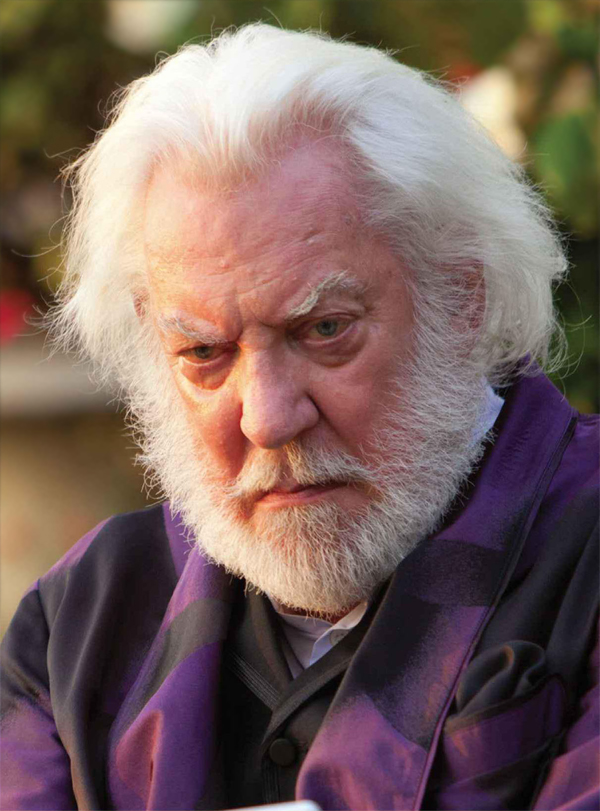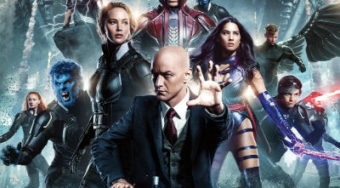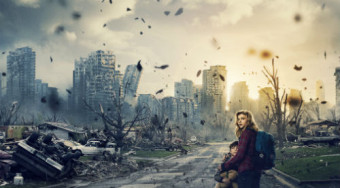Blog
Hunger Games: An Orwellian Adventure

In recent years there have been a number of dystopian films – The Book of Eli, The Road, and V for Vendetta, to name a few – that have captured the attention of American moviegoers. But until now, it seems, none have been more captivating than director Gary Ross’s blockbuster hit, The Hunger Games.
Based on Suzanne Collins’ best-selling novel, the story takes place in the fictional nation of Panem. The film stars Jennifer Lawrence as Katniss Everdeen, the hapless heroine who becomes a contestant (or ‘tribute’) in the annual hunger games. Briefly stated, each year one young man and woman is randomly selected from the country’s twelve districts to participate in a fight-to-the-death competition. As it happens, after her 12-year-old sister Primrose (Willow Shields) is unexpectedly chosen, Katniss courageously offers to fight in her stead.
What struck me most about this film is how the setting of the story can be described almost entirely in Orwellian terms. The residents of the twelve outer districts, for example, live in squalid and poverty-stricken communities far removed from the capital city. Even worse, Panem’s citizens live under perpetual surveillance – 24 hours a day – and are subjected to the whims of a sadistic government that denies them basic necessities such as food and clothing.
Indeed, like all forms of totalitarianism, power and wealth is concentrated in the hands of the ruling class, a revelation that becomes starkly evident when Katniss and Peeta Mellark (Josh Hutcherson) – her district’s male tribute – enter the Capitol. This land of opulence, filled with majestic buildings and gross materialism, is a confounding sight for the protagonists who have presumably never left home. This scene, in effect, is one of the most memorable moments in the film. For the first time, I think, Katniss and Peeta finally realize how radically different their lives are from the greedy oligarchs in power who run the government.
While one can aptly describe The Hunger Games as Orwellian (in every sense of that term), there is a salient discrepancy between the film and George Orwell’s 1984. Orwell exerts a great deal of effort in his final novel describing the utter hopelessness and desolation of Winston Smith’s existence. The nation of Oceania, to phrase it another way, is so bereft of individualism and free inquiry that life in Orwell’s dystopia is ultimately not worth living. Katniss Everdeen, by contrast, doesn’t succumb to this same fatalism, which is one of the reasons her character is so likeable and inspiring.
Interestingly, the Panem government (I was surprised to learn) never executes the hunger games winner after the spectacle is over. “Hope,” President Coriolanus Snowe (Donald Sutherland) explains rather scornfully, “is the only thing stronger than fear.” Still, what he fails to recognize is that while Panem’s citizenry tolerates – and the regime welcomes – the yearly slaughter, there is an innate desire in all people (as evidenced by the rebellion in the outer districts near the end of the film) to break their chains of bondage and fight for their own freedom.
“I just keep wishing that I could think of a way to show them that they don’t own me,” Peeta says to Katniss the night before the hunger games begin. “If I’m going to die, I want to still be me.” In the end, where I think the film succeeds – and succeeds brilliantly – is its insistence that hope is the most powerful weapon against the forces of totalitarianism and fanaticism. And that while the right to live freely often comes at a price, it is the one cause always worth fighting for.
In recent years there have been a number of dystopian films – The Book of Eli, illness
The Road, cure
and V for Vendetta, to name a few – that have captured the attention of American moviegoers. But until now, it seems, none have been more captivating than director Gary Ross’s blockbuster hit, The Hunger Games.
Based on Suzanne Collins’ best-selling novel, the story takes place in the fictional nation of Panem. The film stars Jennifer Lawrence as Katniss Everdeen, the hapless heroine who becomes a contestant (or ‘tribute’) in the annual hunger games. Briefly stated, each year one young man and woman is randomly selected from the country’s twelve districts to participate in a fight-to-the-death competition. As it happens, after her 12-year-old sister Primrose (Willow Shields) is unexpectedly chosen, Katniss courageously offers to fight in her stead.
What struck me most about this film is how the setting of the story can be described almost entirely in Orwellian terms. The residents of the twelve outer districts, for example, live in squalid and poverty-stricken communities far removed from the capital city. Even worse, Panem’s citizens live under perpetual surveillance – 24 hours a day – and are subjected to the whims of a sadistic government that denies them basic necessities such as food and clothing.
Indeed, like all forms of totalitarianism, power and wealth is concentrated in the hands of the ruling class, a revelation that becomes starkly evident when Katniss and Peeta Mellark (Josh Hutcherson) – her district’s male tribute – enter the Capitol. This land of opulence, filled with majestic buildings and gross materialism, is a confounding sight for the protagonists who have presumably never left home. This scene, in effect, is one of the most memorable moments in the film. For the first time, I think, Katniss and Peeta finally realize how radically different their lives are from the greedy oligarchs in power who run the government.
While one can aptly describe The Hunger Games as Orwellian (in every sense of that term), there is a salient discrepancy between the film and George Orwell’s 1984. Orwell exerts a great deal of effort in his final novel describing the utter hopelessness and desolation of Winston Smith’s existence. The nation of Oceania, to phrase it another way, is so bereft of individualism and free inquiry that life in Orwell’s dystopia is ultimately not worth living. Katniss Everdeen, by contrast, doesn’t succumb to this same fatalism, which is one of the reasons her character is so likeable and inspiring.
Interestingly, the Panem government (I was surprised to learn) never executes the hunger games winner after the spectacle is over. “Hope,” President Coriolanus Snowe (Donald Sutherland) explains rather scornfully, “is the only thing stronger than fear.” Still, what he fails to recognize is that while Panem’s citizenry tolerates – and the regime welcomes – the yearly slaughter, there is an innate desire in all people (as evidenced by the rebellion in the outer districts near the end of the film) to break their chains of bondage and fight for their own freedom.
“I just keep wishing that I could think of a way to show them that they don’t own me,” Peeta says to Katniss the night before the hunger games begin. “If I’m going to die, I want to still be me.” In the end, where I think the film succeeds – and succeeds brilliantly – is its insistence that hope is the most powerful weapon against the forces of totalitarianism and fanaticism. And that while the right to live freely often comes at a price, it is the one cause always worth fighting for.
Related Content
Comments
Recent Posts
Categories
- 10 Best Things
- 10 Characters
- 10 Differences
- 10 Movies
- 10 Reasons
- 10 Ways
- 5 Characters
- 5 Directors
- 5 Films
- 5 Reasons
- 5 Reasons We Love
- 5 Roles
- 9 Movies
- Appreciation
- Award Shows
- Best of the Year
- Blu-Ray/DVD Reviews
- Book Reviews
- Box Office Report
- Characters: Then and Now
- Emmy Awards
- Episode Recap
- General
- Giveaway
- Golden Globes
- Homeland
- HuffPost Live
- Interview
- Jimmy Kimmel
- Jurassic World
- Monday Spotlight
- Movie News
- Movie Preview
- Movies to Look Forward to
- Must-Read Lists
- Must-Read Reviews
- New on DVD
- New Trailer
- Oscars
- Television Review
- The Colbert Report
- The Credits
- The Late Late Show with James Corden
- The Late Show with Stephen Colbert
- The Movies of
- The Year in Movies
- Tonight Show with Jimmy Fallon
- Trailer Talk
- Trailers
- TV Trailer
- Video
- Worst of the Year












